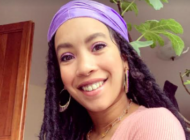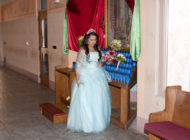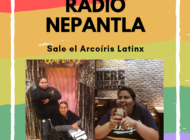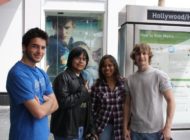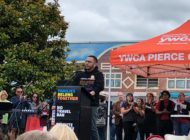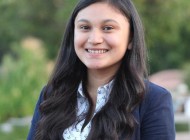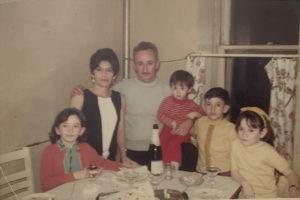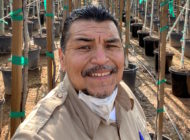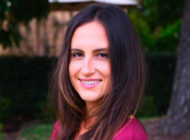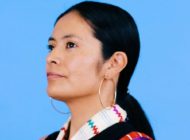Jazmin Navarrete speaks to young Latinx about their experiences with their religious identity.
By JAZMIN NAVARRETE
EL NUEVO SOL
During the spring 2021 semester, I had to write a personal story for my Spanish-language journalism class. Trying to find a story about my life that was newsworthy was not easy, until a story idea popped in my head that I wasn’t so sure about writing, my personal story on leaving the Catholic church.
Religious identity is a complicated thing and since I was 17-years-old I’ve been on this journey to find out what I still believed in and if I was still considered Catholic, especially because I didn’t want to question my belief in God, it wasn’t until recently that I forced myself to finally find some answers.
The number of Hispanic people who identify as Catholic has decreased over the years.
In 2019 the center came out with another study that revealed 57% of Hispanics identified as Catholic in 2009, and 10 years later in 2019, the percentage was 47%
The number of young Hispanic Catholics is decreasing and I wanted to know the reasons why.
One of my struggles was feeling like I had one foot out the door. I believed in God, but not in the institution that I was a part of, I read the bible, but didn’t agree with many of its teachings. It felt like I was questioning everything about religion, even God, and I was confused about who I was because religion had always been a big part of my identity.
A confusion I had was the line between what I no longer believed in and what I did. How could I not be considered Catholic, if I still had certain beliefs, but also how could I be considered Catholic, if I was rejecting a lot more?
Even though my family aren’t regular church goers anymore, the behaviors and belief system are still a part of their lives and I felt guilty for going against them.
I started college around the same time I started questioning my religious identity. It was there, throughout the years, that I was able to solidify my cultural and social beliefs and become confident in what I believed and stood up for.
My roommate and friend of four years helped a lot.
“Even if my views are seen as wrong by the church, I continue to hold those beliefs. The only person who can make me change my own beliefs is myself as I continue to learn and unlearn,” said Judith Elguezabal, 22, majoring in Psychology at California State University, Northridge.
She grew up in a family where Catholicism was not practiced regularly and only occasionally went to church.
“I never felt the need to practice religion because it wasn’t a part of my life so I was okay with not having a religious upbringing. I don’t need to worry about what the bible thinks or whether it’s acceptable in a religion or not,” she said.
She helped me be more confident in my beliefs, but the issue was finding my new norm.
I spoke to another California State University, Northridge, Criminal Justice student, Ariana Morales, 22, who comes from a religious Catholic family, but she no longer practices or goes to church.
Her parents would take her and her siblings to church every Sunday and were strict on religious teachings. When she was around 18 and 19 and had started college, she stopped practicing.
“It was small things that led up to it. The stuff that they would say sometimes, I wouldn’t agree with it. At first, I felt bad, like if I was letting my parents down because I wasn’t following their practices,” she said.
Her parents are somewhat understanding of her choice. They know, but don’t want to accept it.
“I feel guilty, what if I’m messing up, what if they’re right? And I’m just doing this because I have this idea in my head, what if I regret it? I was skeptical if I was making the right decision, and then after I started feeling, like something wasn’t demanding anymore, I felt more free,” she said.
Across the country in Maryland, business owner and photographer, Nivana Campos, 30, had a religious upbringing.
“It was the normal expected thing. It’s just something you do. You know, you’re young and certain things are expected,” she said.
She was a conservative child, but when she was around 11-years-old, she moved to a predominantly white rural area and her ideas started to change and became traditionally more liberal. When she was 15, a friend came out to her and it solidified it for her and realized there was something wrong with Catholicism, but it was a part of her community that she didn’t stop practicing the traditional behaviors of a religious person.
“For me the defining moment was legitimately my friend coming out to me, like that was the one thing that stuck out to me that these things are wrong in terms of what I’m being told,” said Campos.
“The idea that like hell imposing I don’t know punishments on people, that’s what kind of hit me,” she said.
When she started college, she realized that it wasn’t working out for her.
“Slowly through taking college classes I realized that my beliefs didn’t align with what I was being told and I started to view the bible itself more as a piece of literature that was actually written by people that are maybe more educated than I am, but it’s fallible and that’s when it started actually being a thing, this just isn’t going to work out for me,” said Campos.
Campos identifies as agnostic as there are larger things she can’t define.
“Personally, I don’t believe in religion for myself. I understand why people want to associate with a religion for cultural reasons or ethnic reasons. I understand the reason why people seek religion. I personally don’t think it served me in a way that would benefit me,” she said.
Campos stated that when she has kids, she will baptize them to appease her family.
“I actually had a conversation with my boyfriend, for family reasons,100% I’m going to baptize my kids. I know for the sake of my dad and my extended family in Peru, it’s something that I know I’m going to have to do,” she said.
To hear other’s experiences with religion was an eye opener to how common it is.
I spoke to CSUN grad student in the Mass Communication program, Eder Díaz Santillan, 35, who gave me some clarity on where I stand now.
“If something is rooted deep in your identity, it’s really hard to let go of it and I don’t think you can,” he said.
Speaking to people who found their place after their own struggles with their religious identity and getting to know their experiences, was comforting.
“It’s a complicated relationship. Your feelings and your place might change and it’s okay and go easy on yourself when and if that happens,” said Santillan.
To me, evolving as people means questioning, unlearning, and relearning things that don’t fit who we are and I’m learning to be okay with the process of discovering who I am and where it’s going to lead me.
“Learn to be okay that we have a journey and things are always going to change, so what you decide today might not be what is right for you tomorrow,” said Santillan.
Tags: Catholic Catholicism Jazmin Navarrete religión religiousidentity








